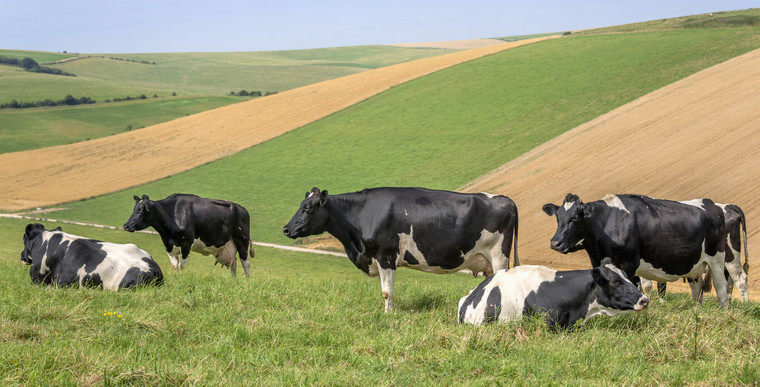William Westacott, who milks 190 Holstein/Friesians at Home Farm, Chevening, near Sevenoaks and is a Royal Association of British Dairy Farmers (RABDF) council member, wants “uniformity and a fair deal for all dairy farmers” to come out of a 12-week consultation announced by the Government.
In launching the consultation, which is due to end on 15 September 2020, the Government admitted that evidence gathered during the Groceries Code Adjudicator Call for Evidence in 2016 “highlighted how unfair practices have persisted in the dairy industry”.
Four years on, and following the considerable hardship inflicted on many dairy farmers by the coronavirus crisis, the statement went on: “This consultation will explore whether regulations could be introduced to ensure farmers are treated fairly.”
It said there was evidence that “unfairness in the supply chain has sometimes been caused by milk buyers having the power to set and modify the milk price in a contract, often with little notification,” leading to “uncertainty and pricing that can be unfair to dairy farming businesses”.
Proposals include an option to introduce a mandatory pricing mechanism within all contracts between dairy farmers and processors, ensuring the price paid for milk produced by the farmer is formally agreed within the contract and that negotiations take place “in a clear and transparent way”.
W and CJ Westacott supplies Freshways, and while the farm suffered badly from the knock-on effect of the overnight collapse of demand from the food service sector, William doesn’t blame the buyer.
“We were hit badly, but no more than other people,” he said. “Any company supplying 60% of its market to the hospitality trade would have faced the same problem. If milk can’t be sold, it’s not the middle man’s fault, and Freshways’ action at least saved the business for the longer term.”
What William does see as unfair is the “massive variations” in contract prices across the industry, with ‘aligned contract’ dairy farms that supply the supermarkets generally being paid considerably more for their milk.
“We need more uniformity. The whole sector is badly managed and the farmer is at the bottom of the pile. Contracts are too varied, with some linked to input costs and others at the mercy of supply and demand. We need to stop the massive variations in contract prices, look at the industry as a whole and get some balance on where margins are made.”
The NFU has also urged dairy farmers to speak up for a more effective dairy supply chain and fairer terms for farmers. Dairy board chairman Michael Oakes said: “The NFU has been working with all the UK farming unions to improve dairy contracts. We will be consulting widely with our members to get a range of views that will form the basis of our submission to government.”
Farming Minister Victoria Prentis said: “It is absolutely vital that our dairy farmers are paid fairly for their high quality produce and I am committed to cracking down on any unfair practices within the UK dairy industry.”
In a final plea for dairy farmers to get involved, William added: “We all discuss the issues and complain about the state of the industry and this is a chance to make your voice heard. Please don’t assume someone else will put forward your view. Take part and let’s get something done.”




